The complete guide to home viewing
Get Screen Gab for everything about the TV shows and streaming movies everyone’s talking about.
You may occasionally receive promotional content from the Los Angeles Times.
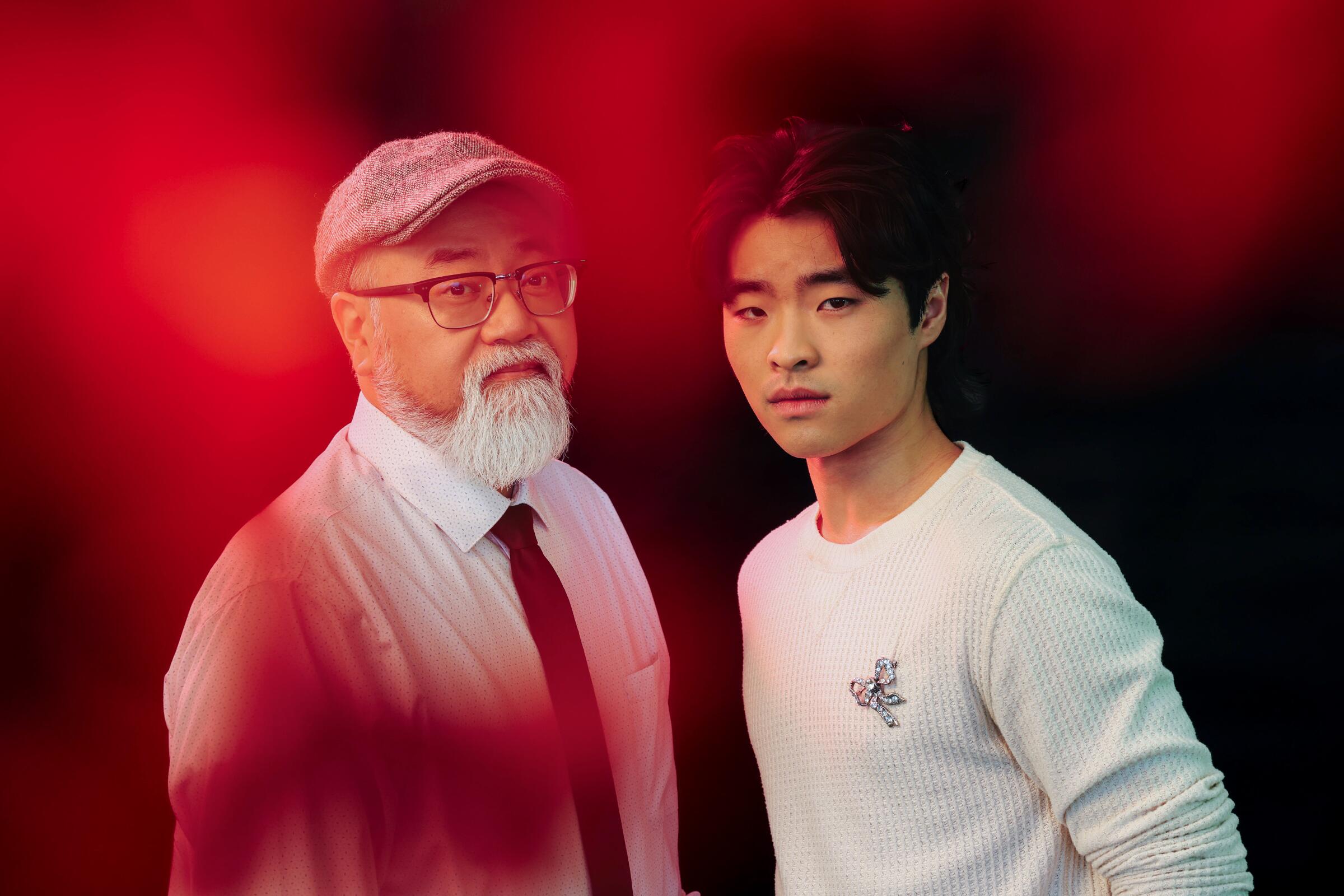
This story contains spoilers for “Avatar: The Last Airbender.”
One of the most emotional callbacks in Netflix’s “Avatar: The Last Airbender” is in the music.
The fourth episode of the series, “Into the Dark,” features a flashback to a funeral. As young Prince Zuko offers his condolences to his Uncle Iroh on the death of his son Lu Ten, the score transitions into an orchestral version of the familiar melody, “Leaves From the Vine.” The song, first heard in the animated “Avatar” series, has long been associated with the Fire Nation general’s grief.
“That wrecked me,” said Paul Sun-Hyung Lee, who portrays Iroh in the new live-action adaptation, now streaming.
“I only just heard the [new] song in December,” added Dallas Liu, who plays Zuko. “I started imagining our scene and [it] killed me.”
Netflix has released new images of its live-action “Avatar: The Last Airbender” series featuring Fire Lord Ozai (Daniel Dae Kim), General Iroh (Paul Sun-Hyung Lee), Azula (Elizabeth Yu), Commander Zhao (Ken Leung) and Zuko (Dallas Liu).
The live-action “Avatar” co-stars were in high spirits as they discussed the show and their characters’ relationship over coffee at a West Hollywood hotel earlier this month. (This reporter borrowed a page from Iroh’s book on the joys of spending time with fascinating strangers and opted for tea.)
Both actors say they are big fans of the animated series, which originally aired from 2005 to 2008 on Nickelodeon. More than once they mentioned the high bar set by the original show and the responsibility they felt to honor its spirit (a previous attempt was not well received), especially because everybody else on set loved the show, too.
“Not even just me and Paul,” Liu said. “Our cast members, our writers, even our transportation and craft [services] team.”
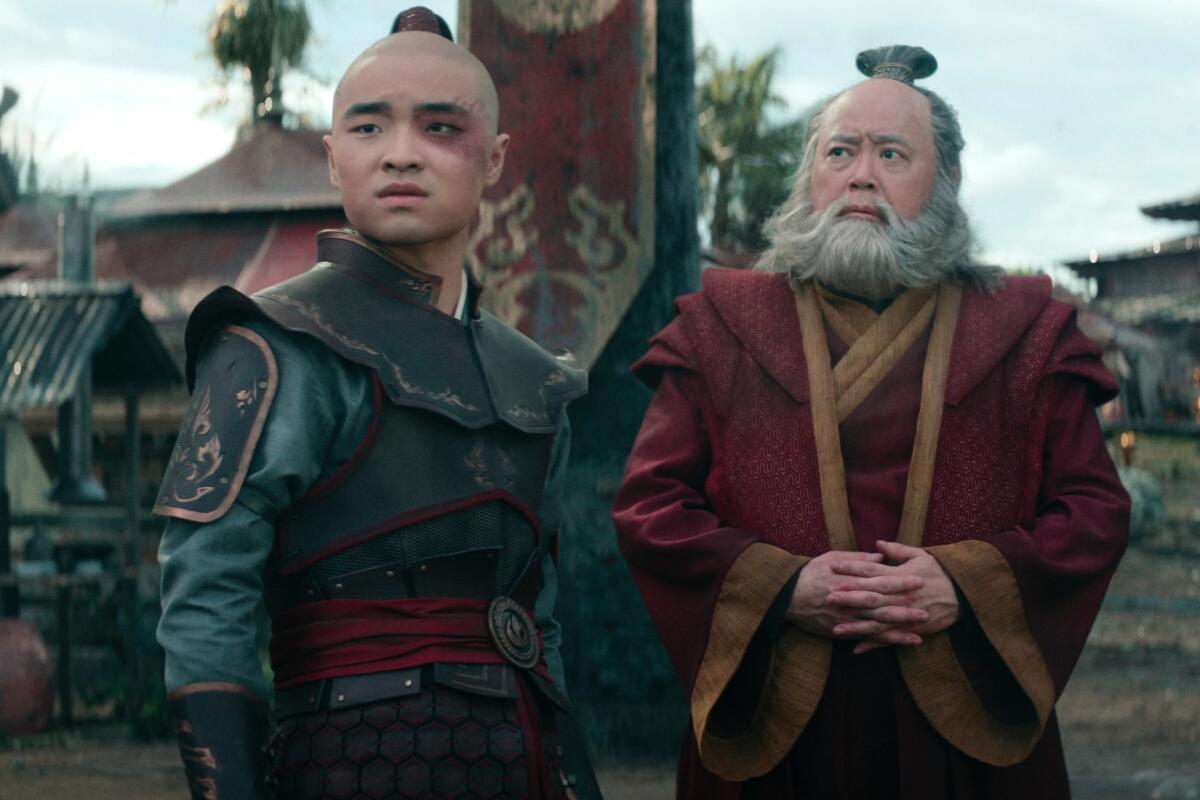
“Avatar” is set in a world inspired by Asian and Indigenous cultures, where certain people have the power to manipulate elements through a martial arts-infused ability known as bending. The original series was the rare children’s cartoon that touched on weighty topics such as war, genocide and imperialism within a fantasy coming-of-age story of a young hero destined to save the world.
“Zuko is a character that I’ve always loved since my childhood,” said Liu of the exiled Fire Nation prince. He is desperately searching for the Avatar — a special bender reincarnated into every generation tasked with maintaining harmony in the world — in order to win his father’s approval and a way back home.
Accompanying Zuko on his mission is Iroh, a renowned general and former heir to the crown who’d spent years at the front lines of the Fire Nation’s ongoing war to conquer the other nations.
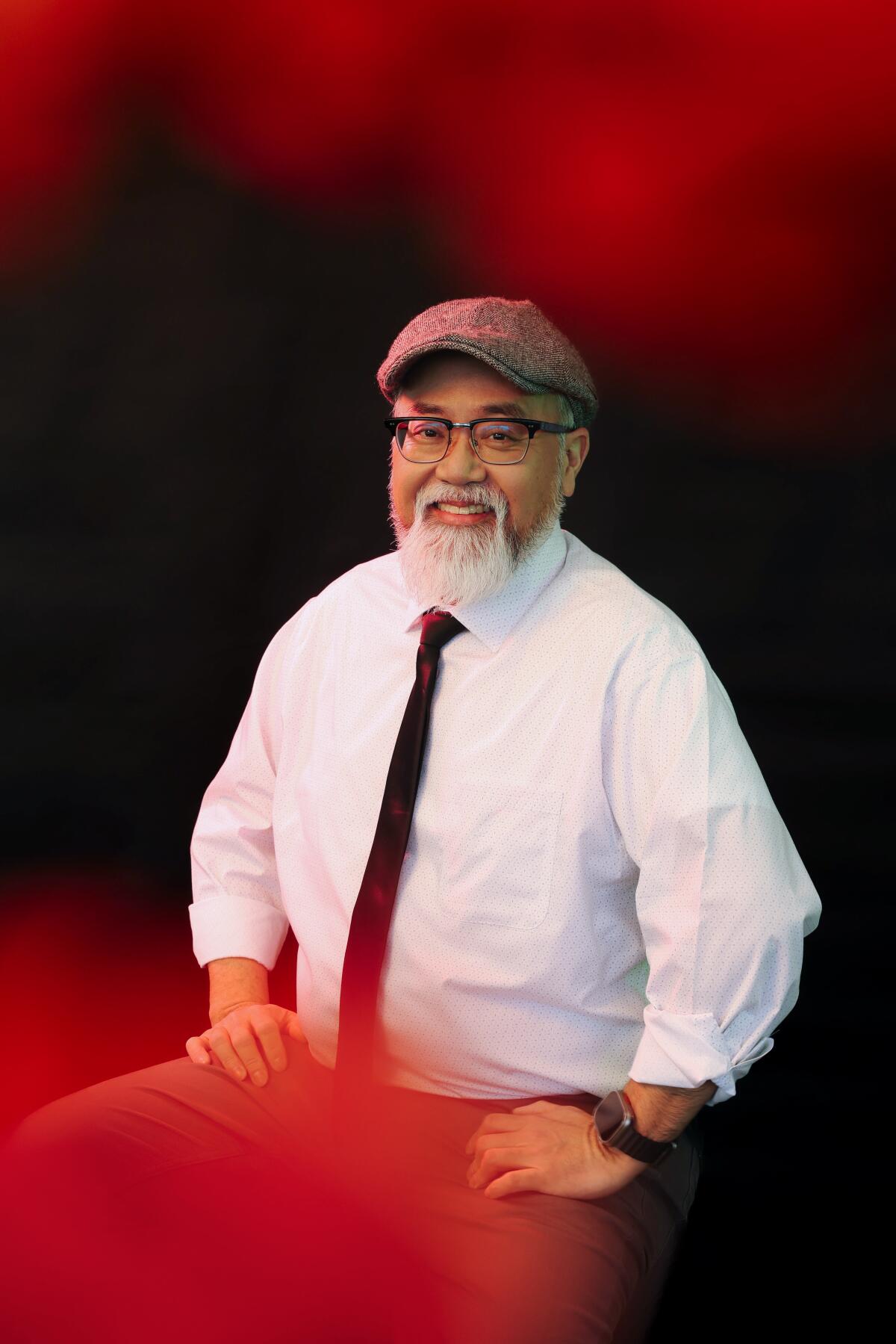
Iroh “seems very jovial, but you know there is way more to him than that,” Lee said. “He carries a profound sense of sadness and loss.”
Working within a franchise with a passionate fanbase is nothing new for Lee, who has appeared as New Republic pilot Captain Carson Teva in several recent “Star Wars” series including “Ahsoka” and “The Mandalorian.” But getting cast as Iroh has offered the “Kim’s Convenience” actor a chance to take on the challenge of portraying a character that is already well-loved.
For Lee, Zuko and Iroh’s relationship “was the most important thing to get right.”
“It’s such a backbone to [Zuko’s] story arc,” Lee said. “To his pursuit and where he starts and where he ends.”
Because while “Avatar” is a story that follows Aang (Gordon Cormier), the world’s last airbender, as he figures out how to embrace his destiny and become the hero he is meant to be, it’s also a story about the teens in Aang’s orbit carving out their own paths.
Knowing this, Liu appreciated that their “Avatar” explores Zuko and Iroh’s past a earlier than it was revealed in the animated show. While there are some hints, it’s not until the second season that the animation digs into the Fire Nation royal family’s (dysfunctional) backstory. And some flashback scenes, like Lu Ten’s funeral, are original to the adaptation.
“I was excited because there was no expectation for it already,” Liu said. “I think there are scenes and dialogue [from the animated show] that people are going to look for with a certain level of expectation. But for everything that is new for Zuko on our show, it allowed me to be an artist and be creative.”
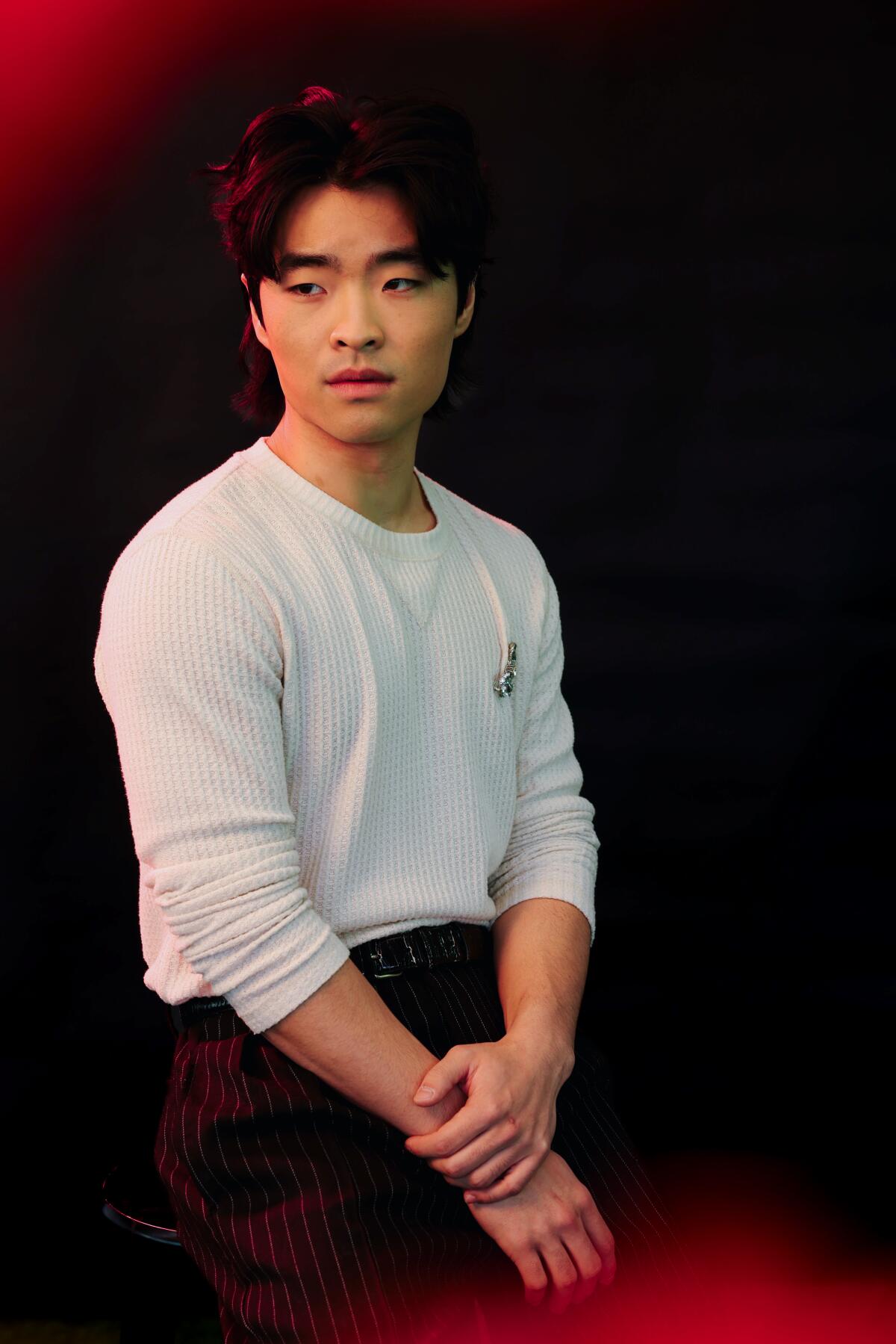
These moments were blank canvases Liu relished. He explained that to prepare for the younger version of Zuko in these flashbacks, he took hints from what he learned from his time on “PEN15” watching creators Maya Erskine and Anna Conkle portray middle-school versions of themselves.
“I think I got to tap into that younger side of my own self because I do see similarities between myself and Zuko,” said Liu. “Especially 14-year-old Zuko because there’s no ounce of evil in him.”
Iroh is despondent at Lu Ten’s funeral, as a procession of guests stop by to express their sympathies for the death of his only child. When it’s his turn, Zuko only offers the sentiments that are expected of him at first. But then he shares more heartfelt words as he tries to console his uncle. It’s one of the show’s earliest looks at Zuko’s humanity and capacity for love.
“Dallas does some really, really beautiful work at that funeral scene,” Lee said. “That speech that he delivers is just so heartbreakingly beautiful and comforting. He does all the heavy lifting. I just needed to react to what he was giving me.”
Not for the first time, Liu is quick to respond to the compliment by expressing his own appreciation for everything he learned from Paul during their time together on set.
“Especially that scene, and in a lot of our other emotional scenes, I can’t stress how much I actually relied on Paul,” Liu said. “He was always there every day to support me with honestly all of our scenes.”
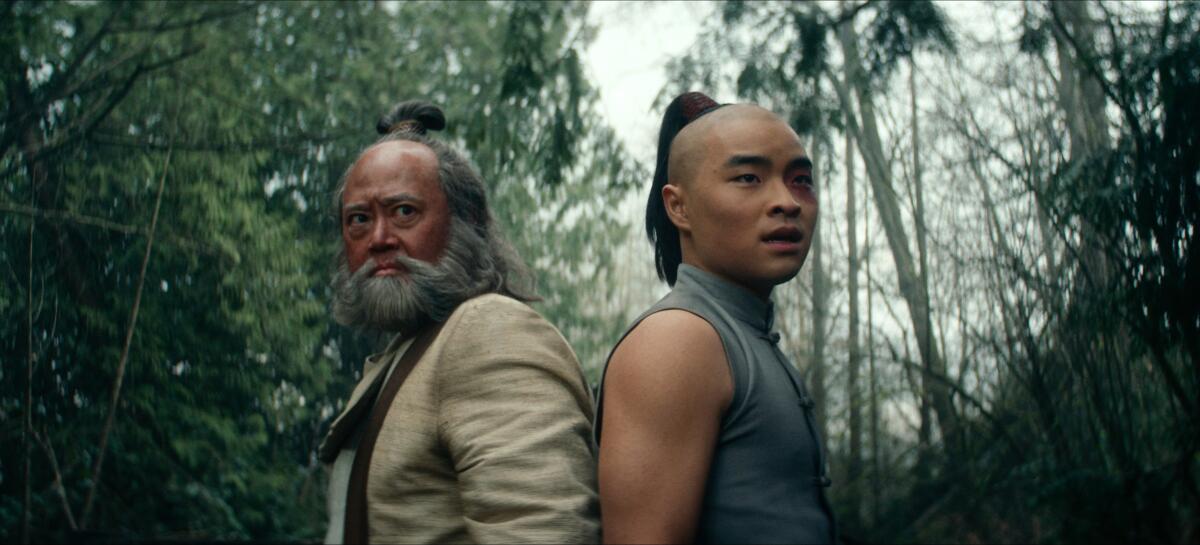
Equally charming was when Liu tried to credit Iroh’s influence as the reason why Zuko is able to open up, for one brief moment, with Aang during another episode. Lee is quick to point out that Zuko’s compassion was something already within him from when he was younger, as seen in the flashback scenes.
Lee is aware that “Avatar” fans have wondered whether he would sing “Leaves From the Vine” on the series. It was first featured in Season 2 of the animated “Avatar” in an episode that shows Iroh singing the song through tears after he sets up a small memorial for Lu Ten on his birthday. (That segment was dedicated to Mako, Iroh’s original voice actor, who had died before the episode aired.)
“I didn’t want to spoil anything … but I knew that one scene was coming up,” Lee said. It’s one of the reveals that leads to “everybody look[ing] at Zuko differently. I love that. This adaptation, it really is about subtext, past experiences, traumas, success, failures, all of that stuff.”
Both Liu and Lee hope that their Zuko and Iroh will get to continue on their journey.
“What I love about their relationship is, Iroh is there to give advice, but he never tells [Zuko] what to do,” Lee said. Zuko’s “got to find his own way, and he supports him. … I really do wish [we get] to do more [seasons], because I want to see that relationship flourish even more.”
The complete guide to home viewing
Get Screen Gab for everything about the TV shows and streaming movies everyone’s talking about.
You may occasionally receive promotional content from the Los Angeles Times.